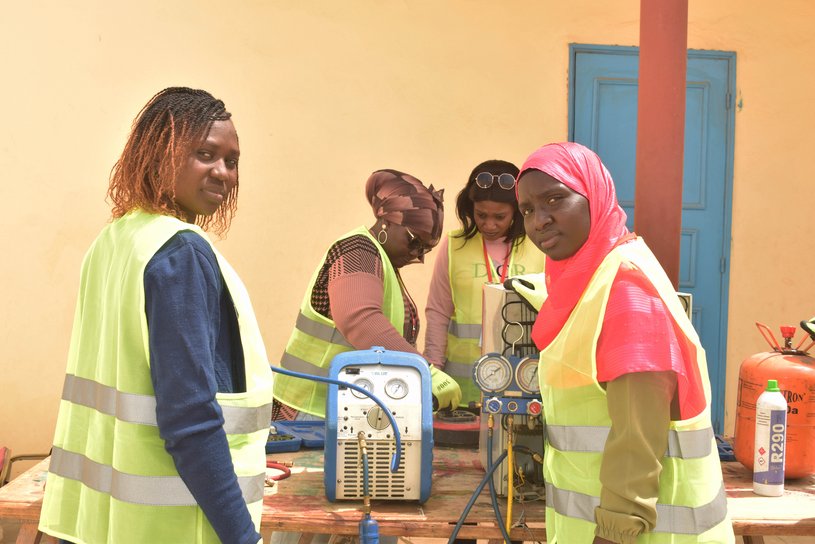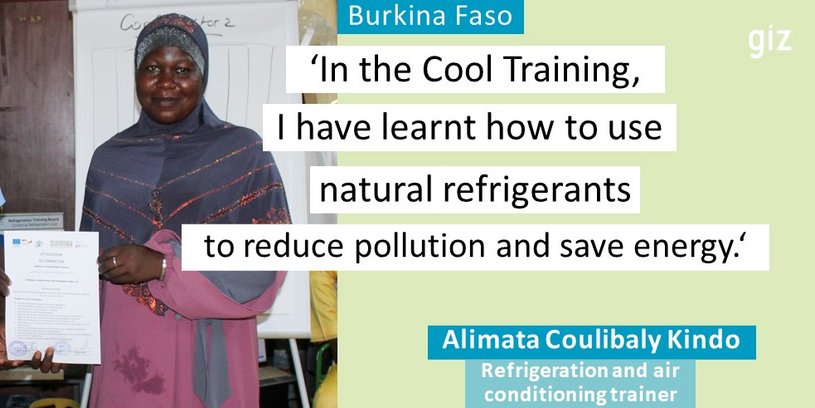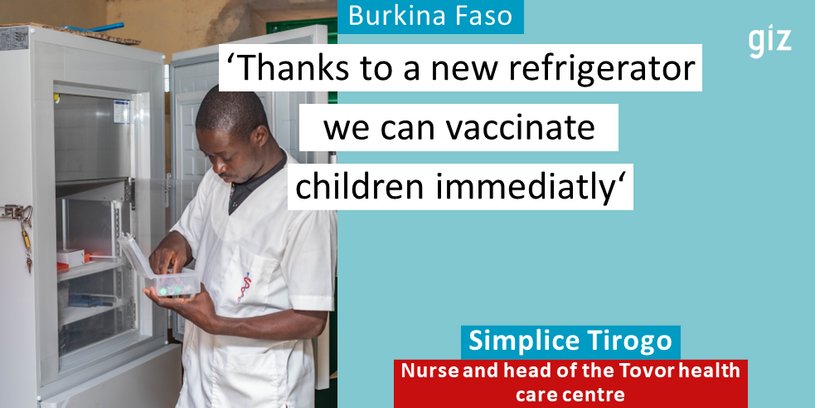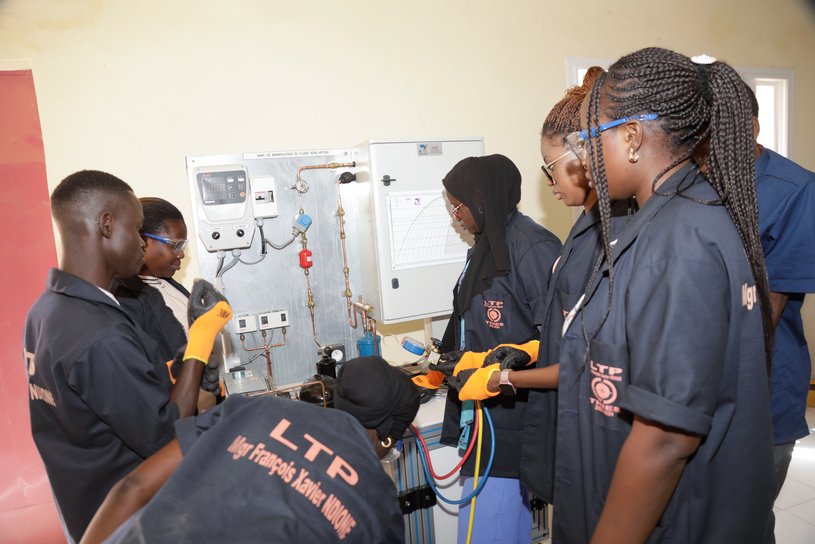Assane Thiam and Fatikha Ba, along with 98 other refrigeration and air conditioning professionals, have successfully completed a training course focusing on the use of natural refrigerants, which are less harmful to the environment and more energy-efficient.
Originally from the Diourbel and Thiès regions respectively, Assane and Fatikha have a conscious vision of their profession. They understand that in an ever-changing world, technology must go hand in hand with environmental responsibility. The refrigeration and air-conditioning sector consumes around 10% of the world's electricity (opens in a new window) and is responsible for around 10% of global greenhouse gas emissions (opens in a new window).
The training took place from 29 January to 01 March 2024 at the Lycée Technique et Professionnel François Xavier Ndione in Thiès, bringing together 100 dedicated technicians. They were introduced to the use of natural refrigerants such as propane, as part of the ROCA project implemented by GIZ in collaboration with the National Ozone Unit of the Ministry for the Environment (Bureau National Ozone, Direction de l'Environnement et des Établissements Classés).
The participants were varied, and included managers from public administration technical departments, experienced trainers and apprentices nearing the end of their professional education.
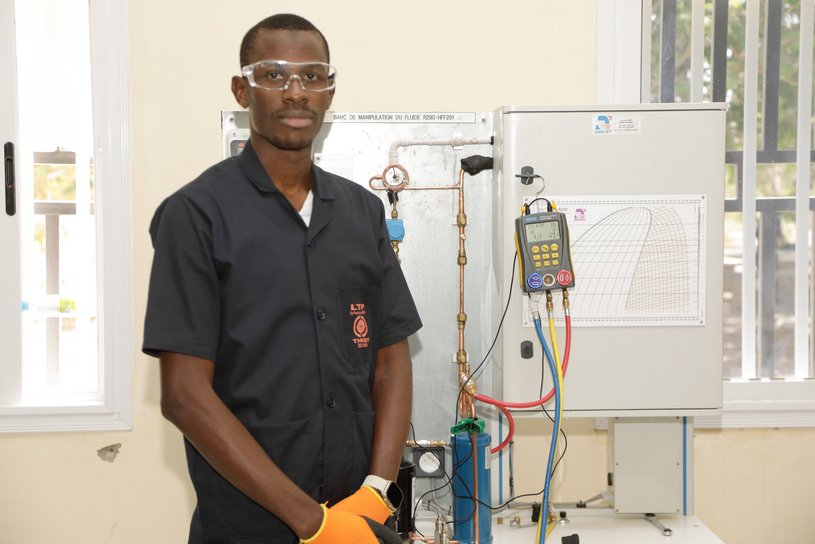 Image: GIZ Proklima / Kayfi Business
Image: GIZ Proklima / Kayfi BusinessFatikha and Assane, members of this latest training cohort, have committed themselves to sharing the knowledge they have acquired and to becoming mutlipliers for the dissemination of best practices in their field.
For Assane, a student teacher in his final year at the 'Ecole Normale Supérieure d'Enseignement Technique et Professionnelle (ENSETP)' at Dakar's Cheikh Anta Diop University, this training has not only enabled him to familiarize himself with natural refrigerants, but also to learn best practices for using them safely. As for Fatikha, she hopes that this experience will strengthen her profile and facilitate her professional integration into the refrigeration and air conditioning sector.
Fatikha and Assane will now be counted among the pioneers of positive change in the refrigeration and air conditioning sector. Together with the hundreds of practitioners already trained by the ROCA project in Senegal, they are building a future where technology and the environment go hand in hand.
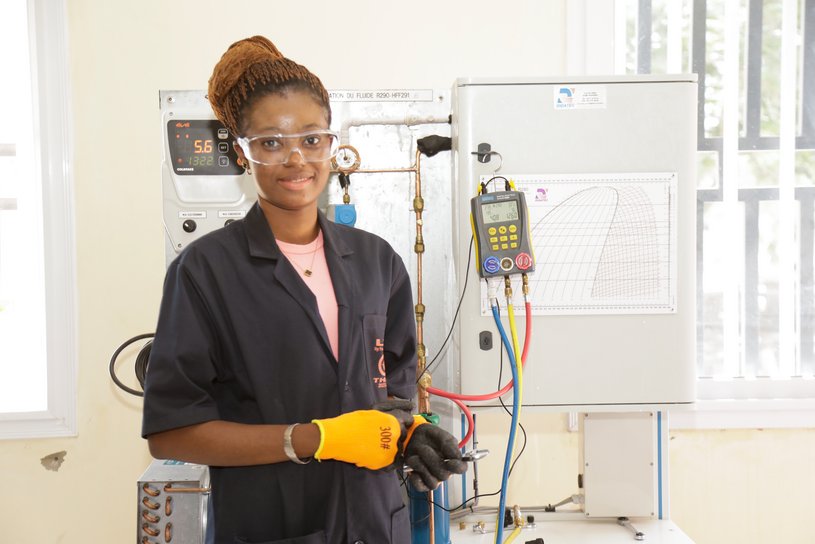 Image: GIZ Proklima / Kayfi Business
Image: GIZ Proklima / Kayfi BusinessThe ROCA project aims to intervene in Senegal, Mali, Burkina Faso and Cameroon, providing support in the fields of policy advice, technology transfer and capacity building. It is implemented by GIZ Proklima and co-financed by the European Union (EU) and the German Federal Ministry for Economic Cooperation and Development (BMZ).

